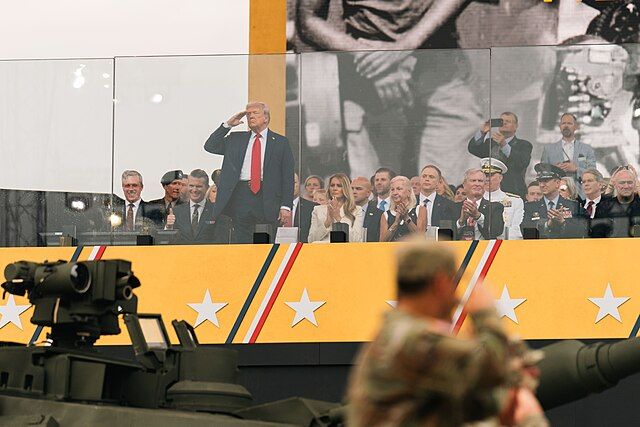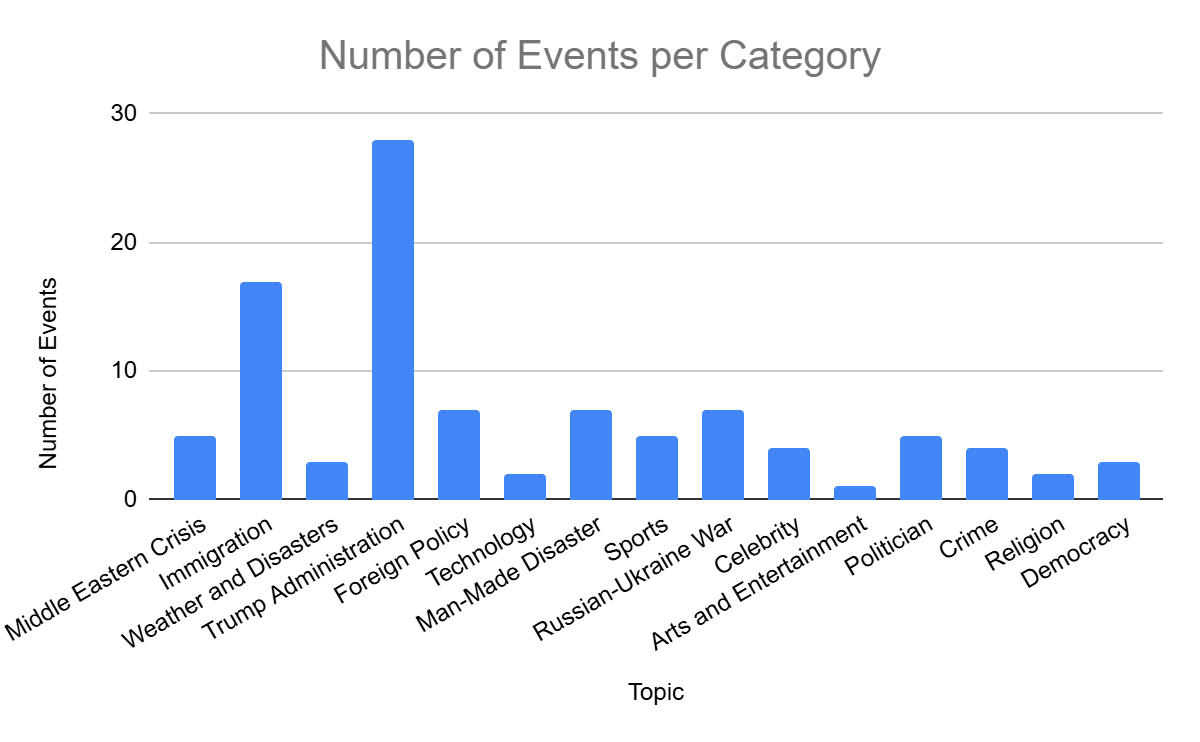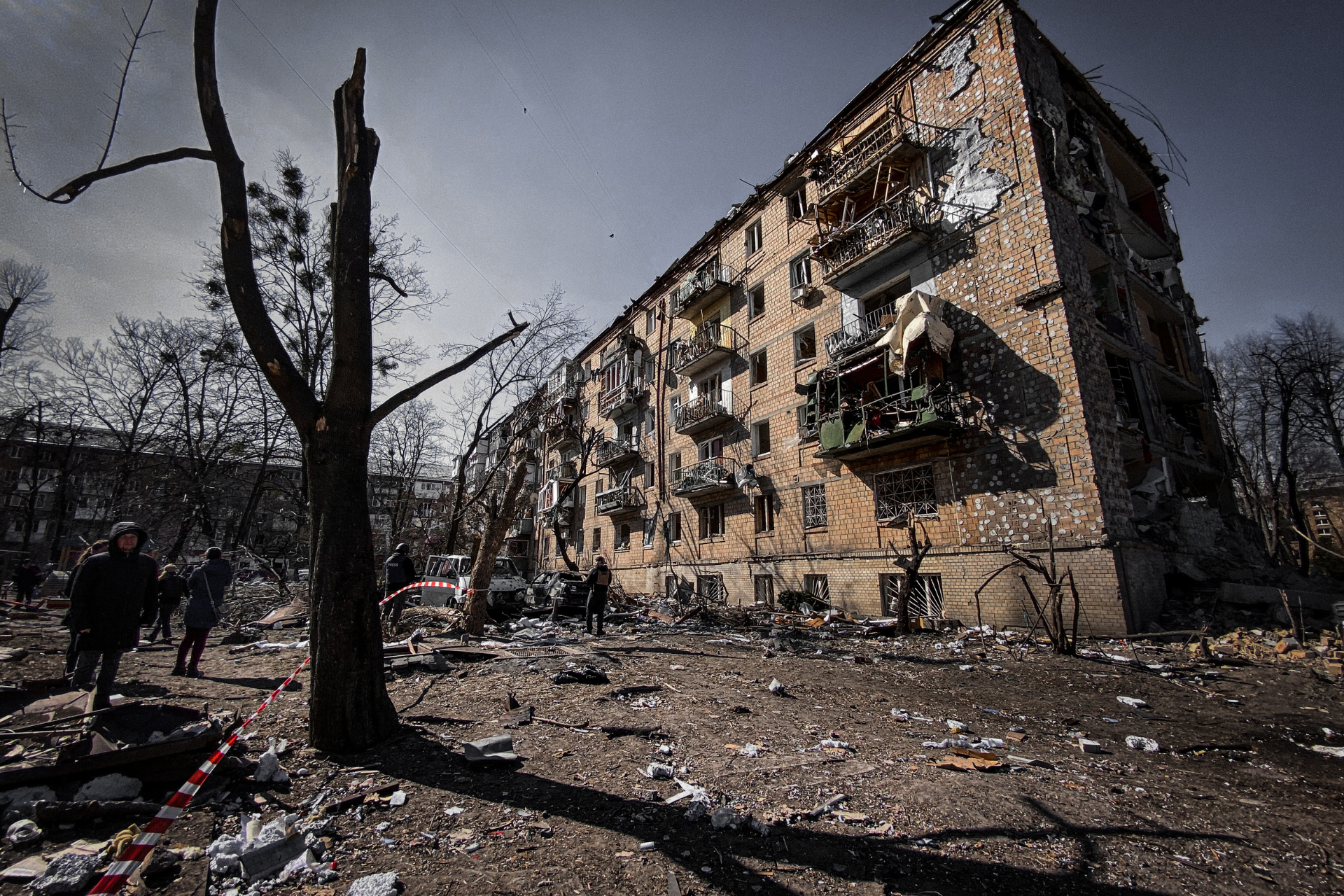How the Media Bias Detector Shows Differences in Public Discourse Between the Biden vs Trump and the Harris vs Trump Debates
By David M. Rothschild, Delphine Gardiner
Following the Thursday, June 27 debate between Biden and Trump, the Mainstream Media was super focused. The Media Bias Detector tracked the top clusters of articles each day afterward:
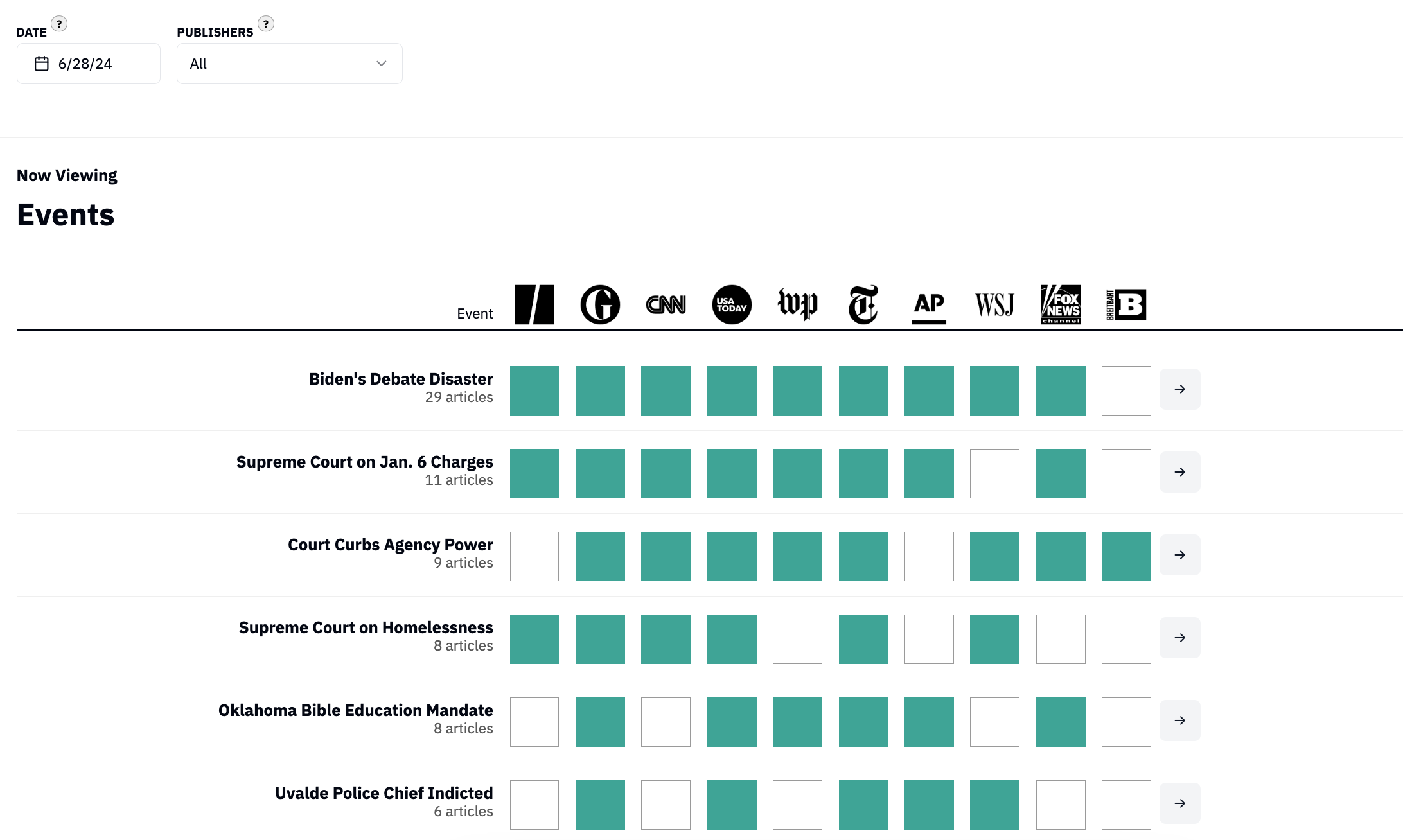
Then, the debate dropped out of the public discourse and the Mainstream Media narrowed in on forcing Biden out of the race: “Democrats Question Biden’s Leadership” was 2nd on (Day 5), a version of that was 1st on Day 6, 4th on Day 6, 2nd on Day 7, 3rd on Day 8, back to 1st on Day 9, 2nd on Day 10, 1st on Day 11-15. Then there was Trump’s assassination attempt on July 12 leading into the Republican National Convention. But, on Day 21, the last day of the RNC, “Biden’s 2024 Candidacy Crisis” hit 2nd place. He withdrew on Sunday July 21 or Day 24 after the debate.
In contrast, following the Tuesday, September 10 debate between Harris and Trump, the Mainstream Media was less focused on the plight of their designated loser. The day after, the top cluster was “Harris Dominates Trump Debate”, with “Harris Wins Debate” also taking the top slot on Day 2. But, by Day 3, the debate was a distant memory.
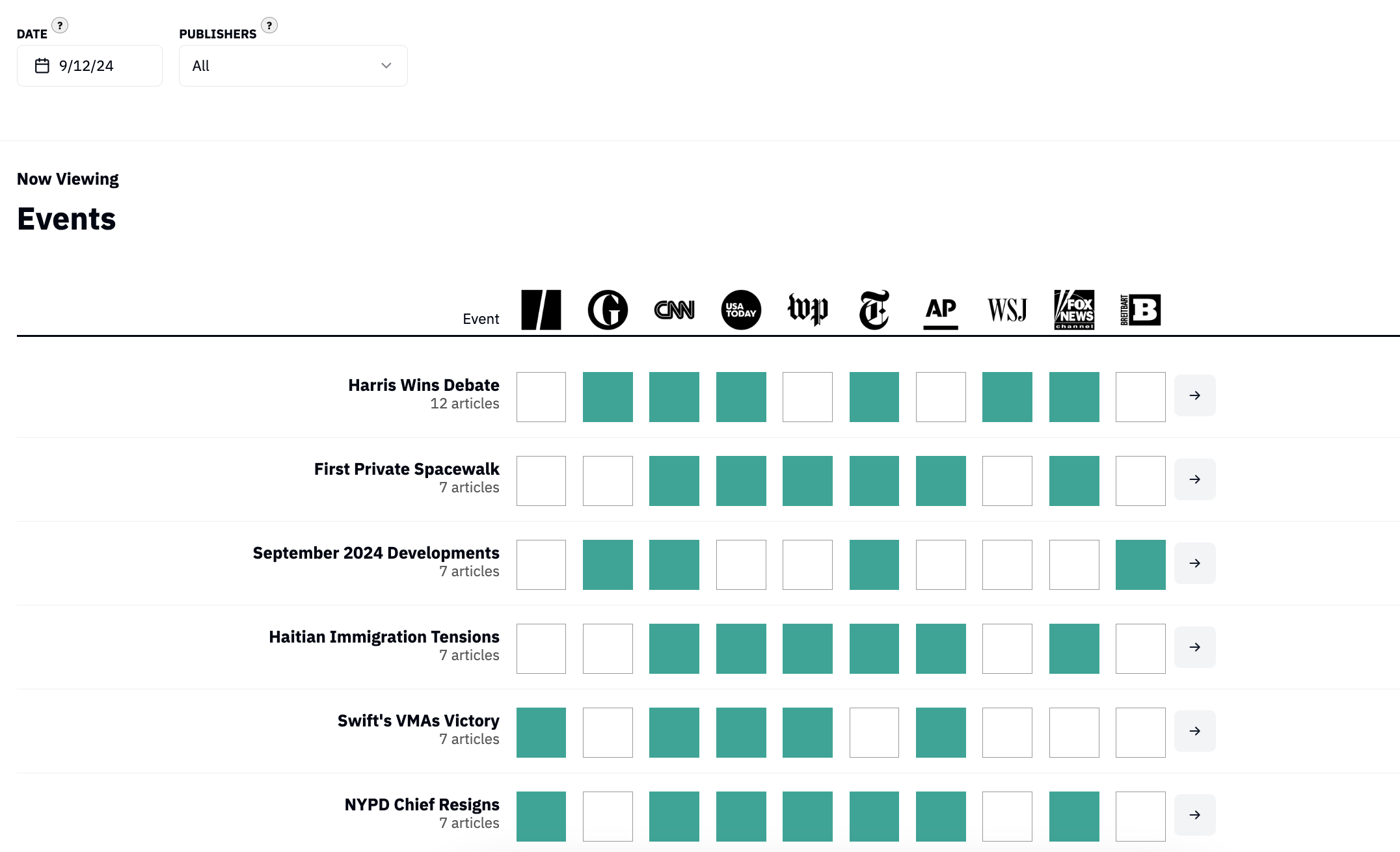
Going back to the second debate, one issue held traction as the debate itself faded away: “Fear and Misinformation in Ohio” about the fallout of Trump and Vance’s misinformation about Haitian immigrants took the 2nd slot on Day 3, and the top slot was “Tensions Over Haitian Immigrants” on Day 4. That storyline fell to the 5th slot on Day 5, and was out on Day 6. This observation raises these questions: Why did the media not focus on this issue the way that they focused on Biden’s apparent frailty? Where was the “Is Trump losing it?” narrative? Despite the absurdities of Trump’s statements, it did not gain nearly as much attention as Biden’s physical condition, highlighting imbalances in coverage related to the upcoming election.
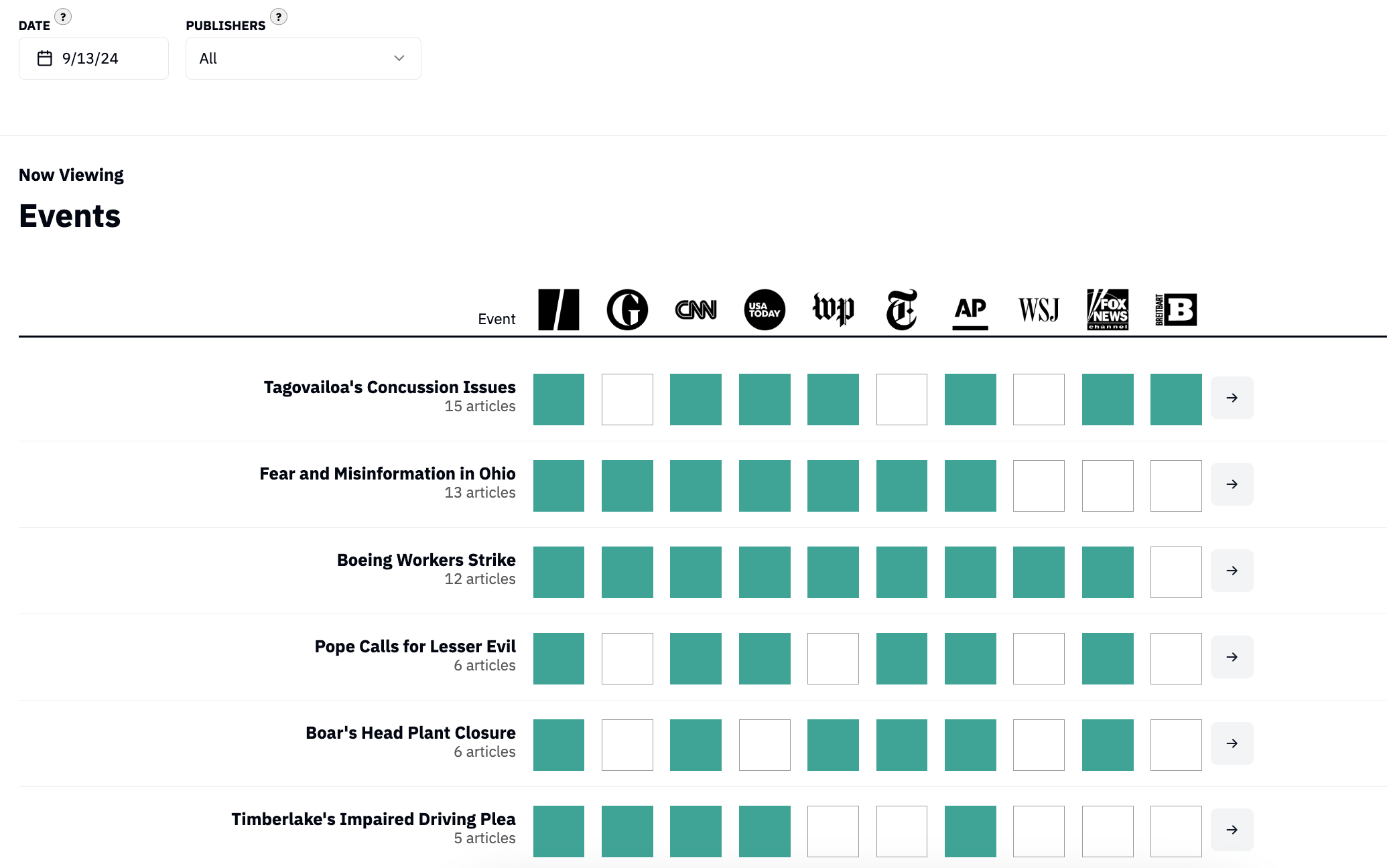
This storyline references Trump’s baseless claims that Haitian immigrants in Springfield, Ohio were “eating the pets,” which was debunked by local authorities and multiple news outlets including Reuters and the Associated Press (and, most critically, debunked by David Muir during the debate). This is not the first time Trump has made racist comments towards Haitians; notably, during an Oval office meeting in 2018 Trump said “Why do we need more Haitians?” as part of a broader discussion on immigration policy where he made derogatory comments about other countries as well.
Trump’s rhetoric has consequences, as his comments about Haitian immigrants led to a bomb threat in Springfield just two days after the debate. Misinformation is reputed to incite violence due to its emotionally charged nature, its role in exacerbating political tensions, and undermines trust in the media. Additionally, such statements perpetuate fear-mongering and fuel the flames of anti-immigrant sentiments amid escalated tensions brought about by the border and ongoing debates about immigration policies in the U.S. (the lies were brought up in response to a question about Trump squashing the bipartisan immigration reform bill).
Low information marginal voters were unlikely to have watched either debate (despite the high viewership numbers of the recent Harris and Trump debate). Thus, what really matters to the election is what trickles out to them in this cultural climate. There was something unique about the persistent coverage of the Biden and Trump debate, and its aftermath, that made it sticky and important. The Mainstream Media created a narrative about Biden’s fitness for office, one that got so much coverage that it could not help but dominate public discourse. In contrast, the inconsistent and short coverage of the Harris and Trump debate (and the racist and xenophobic falsehoods that Trump pushed during the debate) is going to have a much lesser impact on the low information marginal voters.
It is tempting to say that on September 17 (Day 7 following the second debate), it makes sense to focus on the 2nd assassination attempt on Trump that happened on Saturday (Day 5), but similar incidents happened to previous presidents that did not garner major landing-page coverage. For example, in 2023, Trump posted an address that he said was Obama’s, and an armed gunman came to the home. And there was a viable plot to assassinate Biden when he was running for president in 2020, yet this received very little media attention. The amount of coverage, its frame, and its prominence are all choices the Mainstream Media makes. And the choice they are making right now is to put a lot of coverage on this gunman outside of Trump’s golf course, diverting attention from narratives covering his debate loss and the concerns his comments have inspired in Ohio for the Haitian community.
